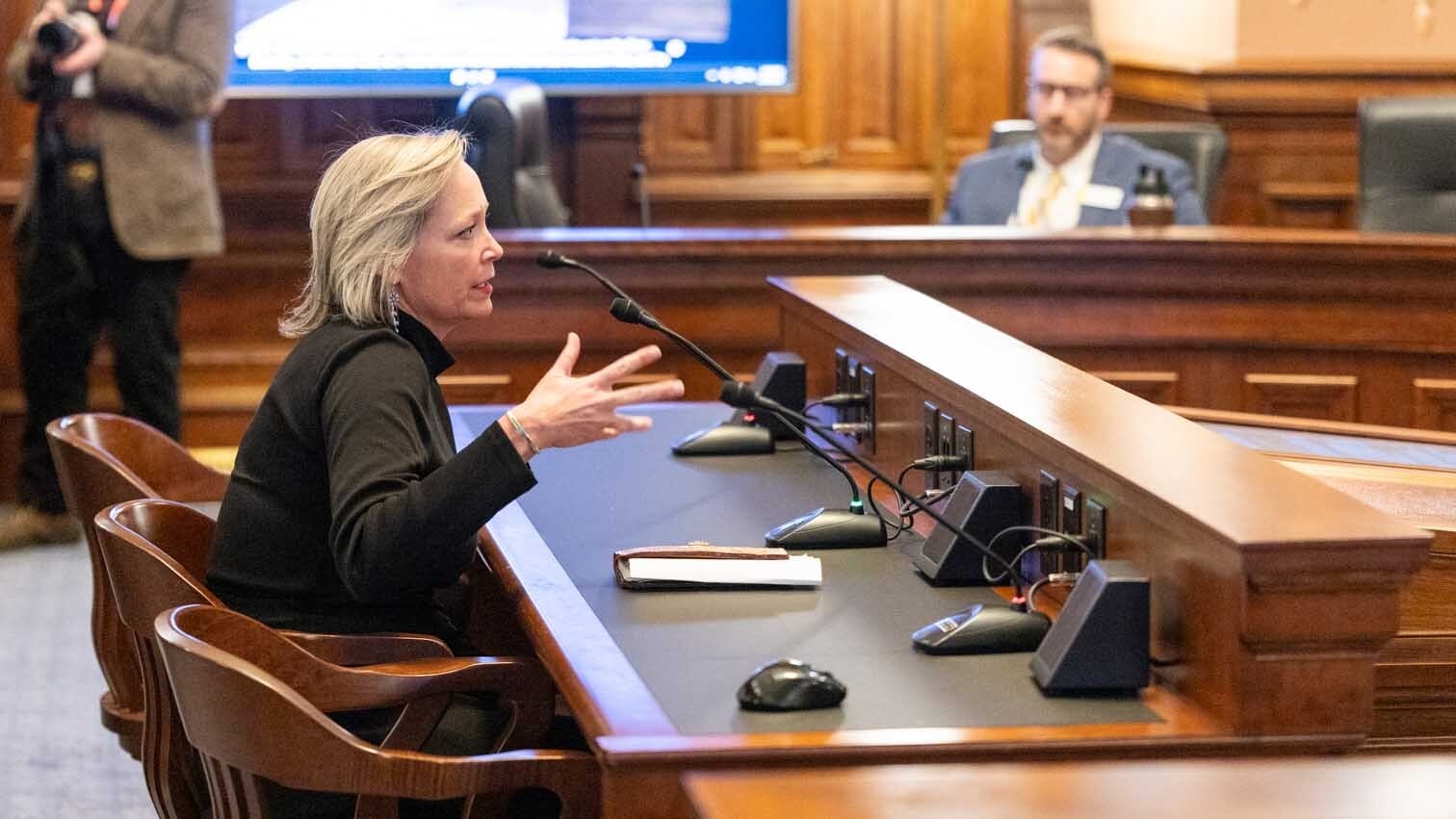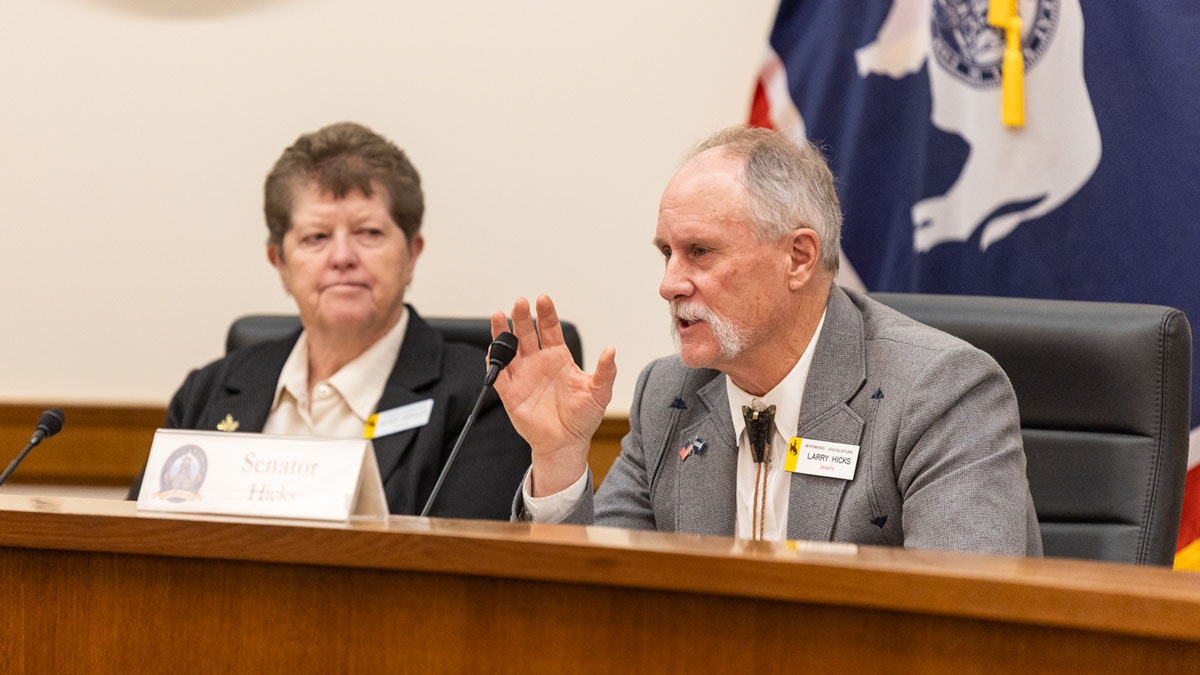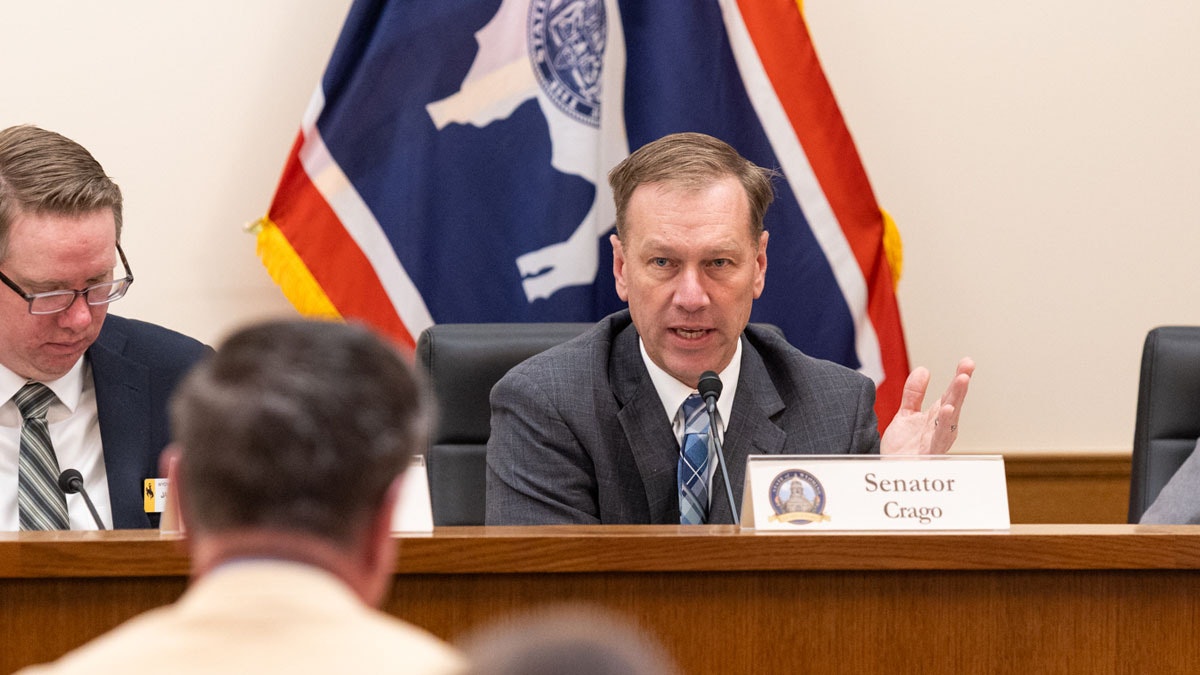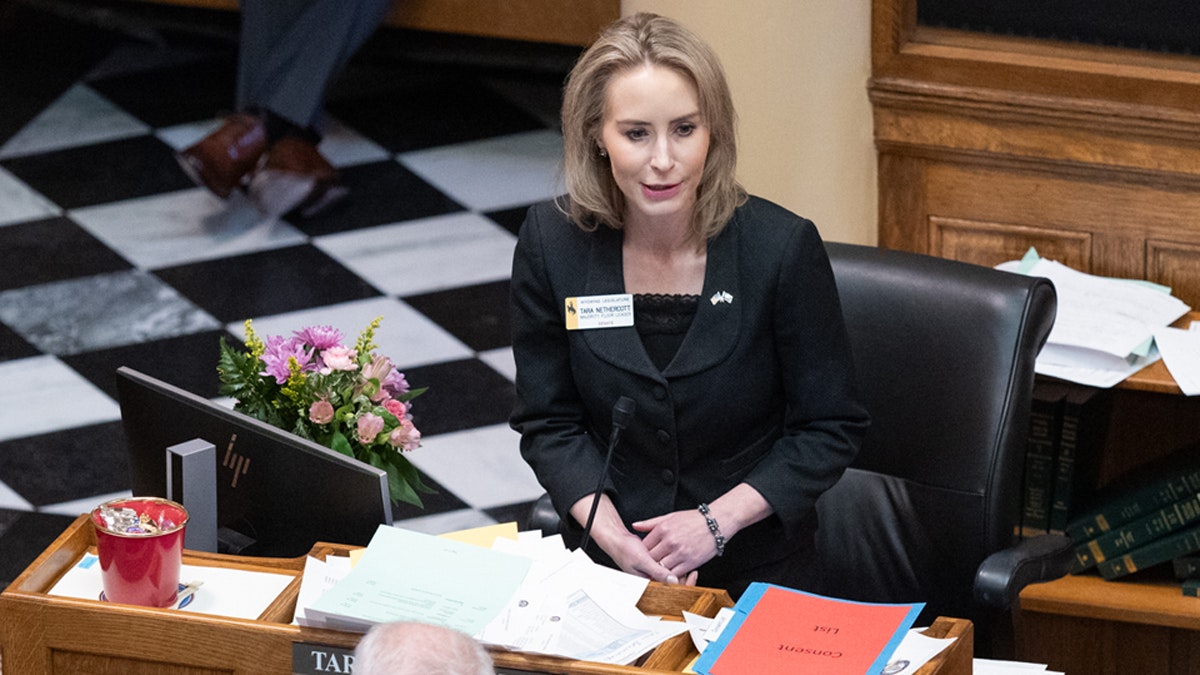There were more than a few smiling faces on the Joint Conference Committee (JCC) when the members bridged a gap of hundreds of millions of dollars and finalized their biennial budget report Tuesday night. The JCC finished their budget negotiations between the House and Senate in rapid time, having only assembled that same morning.
That sense of joy about their accomplishment may be short-lived.
On Thursday, the members of the Senate and House JCCs will present their budget report to the rest of the Wyoming Legislature.
Majority Floor Leader Sen. Larry Hicks, R-Baggs, said he doesn’t believe the proposed budget represents the wishes of Republicans in his chamber. He believes most of the members of the Senate have been left out of the latest budget negotiations.
“The budget is always supposed to be representative of the body. Somebody is going to have to show me in there where it is, because I can’t find it,” he said.
The report is estimated to represent about half the level of $1.1 billion in spending separating the Senate and House’s original budgets.
Rep. Steve Harshman, R-Casper, disagrees and said he views the proposed budget as an effective compromise.
“I was really pleased and really proud of that group that’s hung in there and everybody kept working it,” Harshman said. “You never get everything that you want done, and that’s the way it’s designed. Just keep working at it, keep moving the state forward.”
Pros And Cons
Rep. Cyrus Western, R-Big Horn, said the proposed bill addresses his community’s needs, mentioning its inclusion of $20 million for a trust fund for the state’s 988 suicide hotline services, scholarship money for nontraditional learners, and money to help senior citizens stay in their homes.
In one example of compromise, the JCC returned money that the Senate had cut for the University of Wyoming’s Gender Studies program, but continued with a cut to all funding for UW’s Diversity, Equity and Inclusion office and all related programming.
Rep. Karlee Provenza, D-Laramie, said the continuation of the latter cut gives her serious pause as far as supporting the budget.
“Regardless of what the program is, we’re cutting people’s jobs and we’re taking food off the table for folks,” she said. “It’s not good policy, particularly when it’s based on rhetoric from someone over in (Washington) D.C. or some national agenda.”
She also believes it’s an unwarranted attack on free speech.
UW officials and legislators have said the failure to offer this type of programming may inhibit the school from receiving other unrelated federal grants.
One of Hicks’ biggest issues with the proposed budget is that it eliminates many of the measures made in the original Senate budget to simplify the atate of Wyoming’s revenue streams for people to more easily understand.
“We could have made a substantial difference in our structural positions moving forward,” Hicks said.
He believes this would have also benefited the state in the long term by investing more and depositing more money in savings, rather than taking advantage of Wyoming’s currently strong fiscal state to spend on programs now. The original House proposal would have removed $400 million of the $1.4 billion from the state’s rainy day fund, while the Senate would have added $100 million.
“When we got to start cutting social services like we did in 2020, it’s pretty damn painful,” Hicks said.
What’s Going To Happen?
Rep. Chris Knapp, R-Gillette, said he expects another spirited debate on this new budget.
“There’s always a lot of debate on the House floor when it comes to the budget,” he said.
Knapp has no expectations that the Legislature will add extra days next week so that it can have a chance to override any of Gov. Mark Gordon’s potential vetoes.
He believes Wyoming is in some ways cursed as it often has the luxury to both save and spend, but he’s pleased that property tax relief and mental health funding were addressed this legislative session.
Sen. Cale Case, R-Lander, said he’s unsure how he’ll vote on the budget as there are aspects of the new version he doesn’t like. Case also said he may feel compelled to vote against those who don’t support the budget for reasons he doesn’t agree with himself, such as opposing the budget originally presented to the Senate.
“The Legislature needs to succeed, the Senate needs to succeed, government needs to succeed,” he said. “If it takes my vote to get that budget through, I’m going to vote for it. If it doesn’t take my vote, I’m going to use it to advance my protests.”
However the Senate ends up voting, it most likely will come down to a very close decision just as most of the budget votes have gone this session.
The House vote could also see some drama if the five House Democrats end up voting against it.
Provenza said despite flaws that may exist in the budget, the state needs to have a budget completed by July 1.
“The difference of not having a state budget and not having a federal budget is very different,” she said. “We don’t have a state budget, everything shuts down. There’s no essential service. That’s a heavy decision to make to say I’m going to vote against the budget, and I’ll have to have good reason for that if that’s the choice that I make.”
How Did We Get Here?
The budget process took a highly controversial turn Monday when members of the original House JCC said they would not be able to strike a compromise with their Senate counterparts. This resulted in Senate President Ogden Driskill, R-Devils Tower, appointing a new JCC that was viewed by some as less conservative than the original group.
Sen. Anthony Bouchard, R-Cheyenne, was a member of this original group and said he won’t vote to support the budget because of its inclusion of $150 million for a new Rock Springs High School. The prioritization of this school for this construction was a highly debated issue within the Senate’s budget negotiations.
“They have circumvented the Senate position, which was to follow the law,” he said.
Knapp said he wished the House JCC had offered more of a compromise on its end of the negotiations.
“I wish the setup going into it would have been a feeling of more compromise than we’re given what we’re given,” he said.
He and Rep. Jeremy Haroldson, R-Wheatland, also said the original Senate budget committee was not given an adequate amount of time to defend its budget and come up with a compromise, with its designed purpose to fail.
“I believe that what we’re seeing now was a planned decision all along,” he said.
Leo Wolfson can be reached at leo@cowboystatedaily.com.





